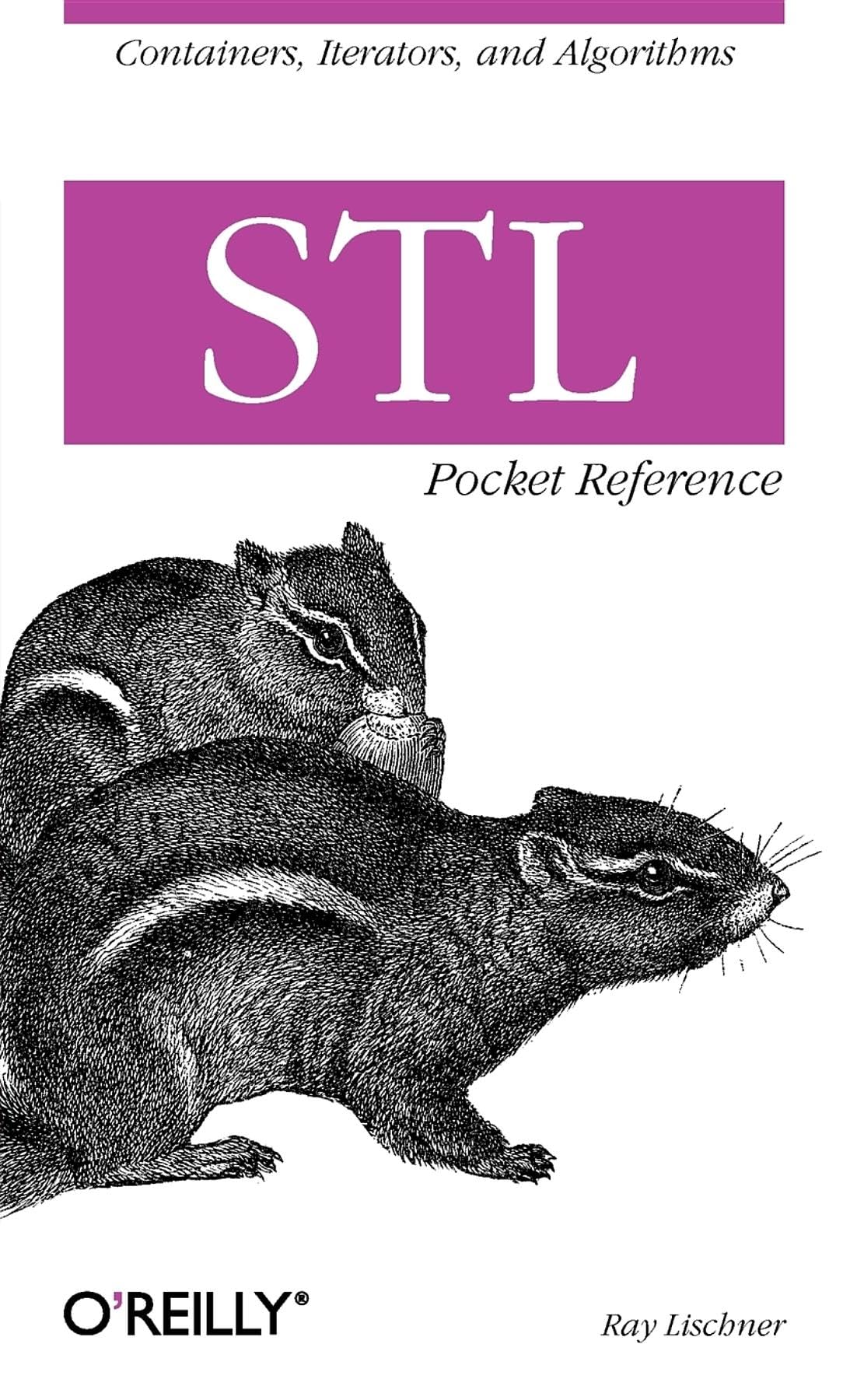

Full description not available
J**I
The orielly pocket refs are essential for geeks like me
If you program in several lanquages, you either have $10k in tools or you have these books in your libraryeven if you have the best IDEs available, the O'Reilly Pocket Refs will give you that extra window your screen just cannot hold
G**N
A Must for the Software Developer Generalist
The O'Reilly Pocket Reference series serves the need of software developers to quickly lookup how to code something that they don't do every day. The formula is quite strict. Like all of these books, this book is a hybrid of introduction, cookbook, and reference in a package that is small enough to easily fit several dozen on your bookshelf. What's good about the STL Pocket Reference is that it provides succinct descriptions of some very abstract concepts that are the lingua franca when dealing with the Structured Template Library. What's missing here is more sample code.
J**Y
I love these things
I love these little pocket references, since my new job I use custom container classes, but when I was using the STL this was a wonderful reference.I actually like these booklets better than Microsoft's electronic documentation, but Apple's XCode documentation system is still faster than paper.
R**N
Would have been much more useful with a few additions
The author states right near the front, on pg 2, that in order to keep this book down to pocket reference size it is not a detailed reference like C++ in a Nutshell, nor does it cover C++ I/O streams or the C/C++ Standard Library. I fully agree on the necessity of that (the 'Nutshell' book is almost 800 pages), however, I would have found this pocket reference far more helpful if it had done two things differently:1) Like a previous reviewer stated, include more examples. As my own example, the author does a good job of explaining some of the drawbacks of reverse iterators, as in this sentence: "The solution is to increment the reverse iterator, call base() to obtain the adapted iterator, and then pass the adapted iterator to erase." That's useful advice but--like a picture being worth a thousand words--a quick code example would speed up immediate understanding of the point being made, which is the purpose of a pocket reference. Code examples would also help clarify the often obtuse syntax of the STL. There are two reasons I pick up a pocket reference: to remind me what the name and operations of that call was to iterate backwards over a container, and to help me get the syntax right so the compiler stops whining. Unfortunately, the second part is missing from this pocket reference.2) Include C++ ios_base. For one thing, the author already includes the basic_string template and I/O stream iterators. That's 2/3s of the way there already. From an academic standpoint, the ios_base stuff is low-level detail. From a practical programming view, I'm always referencing the ios_base format flags, open state, etc. when dealing with streams, even the STL I/O streams. It would be convenient if the necessary syntactical details were in the same pocket reference.I don't regret buying this pocket reference. Like most of the O'Reilly pocket references, it's full of useful information. But I still need to refer to Stroustrup, the Nutshell book, etc. more often than not to really get a handle on exactly how I need to express my wishes to the compiler. Code examples would really help.
G**L
Decent
A decent shortcut or syntax guide. Doesn't cover everything. But it is inexpensive and s good tool.
A**G
samples r better
Samples, flow-charts would serve best to simply get to the point as to what the template is intended to do. As a pocket ref., it should not have paragraphs but just get to the pt & that's best w/illustrative, demonstrative, cases/examples, etc., & whatever happened to flowcharts?
B**R
save your money
I have used stl and think stl is great. I was hoping for a quick programming guide so that I did not have to carry and reference stl books I all ready have. Very few programming examples were given. Found very little use for a book that gives short snippets about stl but avoids showing the use of stl in programming.
A**R
is that much of this function definitions can be very rapidly googled making this reference unnecessary for the most part
I guess I didn't read the description thoroughly as I should. I was looking for a complete STL tutorial from the bottom up and this is not it. Literally this is a "pocket reference" for people who already know the libraries and just needs a quick reminder of some classes or methods. The downside to it, is that much of this function definitions can be very rapidly googled making this reference unnecessary for the most part.